Durham University

Durham University are using AppsAnywhere to provide students with anywhere anytime access to software applications on any device, including Windows, macOS, Chromebooks and mobiles.
Thanks to AppsAnywhere's close integration with Parallels Remote Application Server (RAS), students at Durham University can access their university course software on any popular device and OS, from just one location wherever they are.
In our video above, Durham University's IT Project Manager Jim Macura explains why they chose AppsAnywhere to deliver software applications to students, and how the AppsAnywhere solution is improving the student experience by making apps available across campus on-demand.
I'd like to think that the students would be really delighted by this as a project, because it gives them such a great level of access to applications. I think that the reality is though is that all we're delivering is something which is largely expected these days... most students are expecting to be able to access applications whenever they like.
Jim Macura, Former IT Project Manager at Durham University
See also: Jim Macura's full presentation about flexible remote access >
Creating a mobile campus with AppsAnywhere - Video Transcription
So Durham University was set up in 1832. We now have 3 faculties split up into 25 departments and 16 colleges.
The New World Programme was started in 2013; a very large IT infrastructure and process improvements programme. The project I was mostly involved with from the beginning was the access project, which was all about giving people access to applications from wherever they are.
We needed to find a way to deliver applications in such a way that it was consistent, flexible and simple for the end-user: that came out very strongly for a series of interviews we did with both students and staff. We also had to do something which was cost-effective, sustainable and secure for us as an IT support organization.
We looked at a number of product and looked at the whole VDI provision, because that seemed like an obvious way to go for this but looking at that in detail meant that there was a huge support overhead for us, quite a lot in terms of gaining knowledge and skills, and quite a significant cost as well.
We'd been looking at Parallels RAS anyway and it just hit the nail on the head in terms of what we wanted it to do. As a standalone product it worked fine, but we needed to integrate it with the new desktop environment that we'd put in place, which was to do with virtualizing application through Cloudpaging and through AppsAnywhere.
So what we wanted was for Parallels and AppsAnywhere to work together to build that integration in, so that we had one place to go to for applications. Before we went with AppsAnywhere, Cloudpaging and Parallels RAS, students had to go to a specific location on the university campus, to access those applications that they needed to do their work.
By giving them access to Parallels RAS, means that they can access those applications using whatever device they happen to have at the time and is most appropriate for them, in whatever location they happen to be in at the time.
I'd like to think that the students would be really delighted by this as a project, because it gives them such a great level of access to applications. I think that the reality is though is that all we're delivering is something which is largely expected these days. I think that most students are expecting to be able to access applications whenever they like, they're used to using their tablets and smartphones where apps are available to them at any time through an app store. And that's what they want to see at the university.
And that's what we're trying to get, we're trying to be part of that connected society. It's that flexibility that they have to be access anything, wherever they are, whenever they need to.
Related reading...
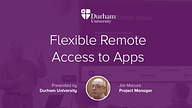
Flexible remote access to applications at Durham University - Presentation
In this presentation, Durham University's Jim Macura explains how they are improving the student experience by enabling flexible and remote access to apps and desktops.
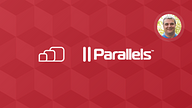
Webinar Recording: AppsAnywhere integrates with Parallels Remote Application Server
In this webinar recording you'll learn how AppsAnywhere integrates with Parallels RAS (Remote Application Server) to deliver apps to any device, including Windows, macOS, mobile and Chromebooks.
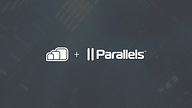
NEW Parallels RAS integration and more AppsAnywhere updates
With the release of AppsAnywhere v2.3 we've built a deep integration with Parallels RAS, enabling IT to deliver both apps and desktops, as well as supporting Chromebooks with HTML5 delivery.
Discover AppsAnywhere...

Improve student outcomes by delivering a better IT service, on and off campus. Make any app available on any device, enable BYOD and repurpose your dedicated lab spaces, all without the need for complex VDI environments.
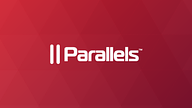
Parallels RAS
With Parallels RAS (Remote Application Server) university IT can securely deploy Windows apps to any device, including macOS, iOS, Android and Chromebooks.
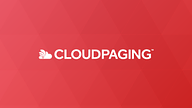
Numecent Cloudpaging
Package and virtualize 100% of Windows apps with Numecent's Cloudpaging technology, the next-generation application virtualization tool.